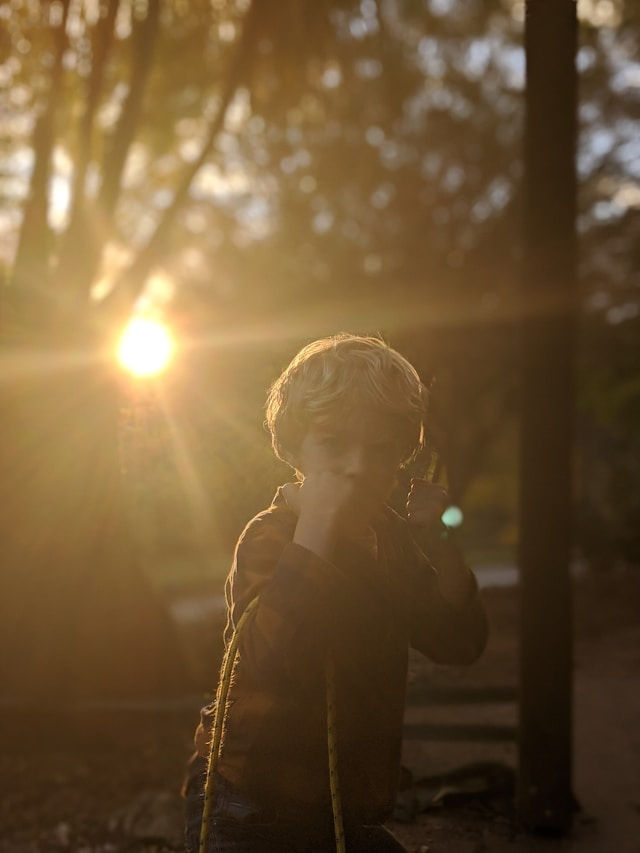Who is watching the watcher? Being aware of self-awareness.
- Kris J. Simpson
- Apr 14, 2025
- 4 min read

The second layer of self-awareness
While walking one day on a peaceful nature trail, I was suddenly startled by the sounds of quacking and flapping wings behind and above me. Turning around quickly, I saw a formation of Canadian geese flying directly overhead.
The unexpected sight broke my train of thought and redirected my attention to something I thought was spectacular. I watched them glide by in awe, lost in wonder, until I became self-aware.
I started to think about why I felt this way and how strange I must have looked to anyone watching — a grown man acting like a child who had never seen geese before, with my chin lowered, mouth open, and eyes wide. But the truth was, nobody was around; it was just me and my self-consciousness.
As humans, we possess a unique ability for self-awareness that is more pronounced than any other sentient being.
While this self-consciousness is undoubtedly a gift, it can also become our tormentor, paralyzing us with fear. This psychological trait allows us to perceive ourselves, helping us create our persona and appropriately navigate our interactions with others.
Awareness will tell children how to behave so they can play games with their friends—assuming getting screamed at doesn’t provide it first. As adults, we’re still engaging in social games with higher stakes; thus, being aware of our behaviour will be beneficial. For instance, self-awareness prompts us to get dressed in the morning before leaving the house, while toddlers do not receive the same message.
In contrast, psychologists define psychopathy as the absence of self-awareness; individuals in this category can manipulate and abuse others for selfish ends. They lack reflection signals that might otherwise caution them against non-mutually beneficial behaviour and seem to feel no remorse for the pain they inflict, as in the most extreme cases, they do not possess a conscience.
In one sense, self-consciousness is a gift, but too much of it can be detrimental. Some individuals cannot progress in life because of how they perceive themselves. It manifests in various forms; for example, a person may feel stuck in their career, too self-conscious to send out resumes and attend interviews so they can find a new employer or a change of occupation.
Others may be paralyzed by fear when approaching a potential romantic partner or establishing friendships.
At the extreme, some individuals struggle to even get out of bed in the morning, overwhelmed by depression, isolated and cutting themselves off from any help they could receive from others. I would describe this state as hell — a place I have visited and wish not to return.
The apparent solution lies in self-regulating our self-consciousness. One must analyze their behaviour and strive to align it with societal norms to facilitate collaboration within the community. However, one should avoid self-deprecation to the point of severely limiting or incapacitating their functioning in society. While this may seem straightforward, how to go about it isn’t.
To foster this change, one needs to become aware of a third party in the experience of self-observation.
There exists the self, the consciousness that observes, and a third entity that watches the observer. It may sound complex, but breaking the negative feedback loop created by uncontrolled self-criticism is a game changer.
This third force, the identifier, questions what is being observed by the consciousness, enlightening us and helping us break free from the negative feedback loop. Consider a student in science class looking through a microscope; the wise teacher encourages the student to view the subject from a different perspective. Similarly, a therapist can ask the right questions that enable you to perceive a situation or yourself uniquely.
My third force is a humorous skeptic who often dismisses my self-judgment, leaving me grinning. This voice reminds me that I’ve encountered similar situations and that there’s no need to dwell on them any longer — we can even laugh about it. I am grateful for this wisdom, which grows with time and challenges and is crucial for moving forward.
Then, there’s the phenomenon when all identifiers are absent. It occurs when you are in a flow state, like an artist playing their instrument with eyes closed, completely immersed in each note, oblivious to the audience. Or consider an athlete watched by thousands who somehow regains their footing after tripping on the field and continues toward their goal without embarrassment.
These two scenarios could be quite different if self-consciousness creeps in, causing the athlete to ‘choke’ or become nervous and make an error doing a movement they have practiced over a million times. Or the musician who realizes they have made a mistake while playing and then continues to make additional errors, frustration replacing flow.
In conclusion, while it may not always be immediately evident, we all possess this third power. It lies beyond the noise and chaos of our obsessive thinking minds.
To discover it, we only need to quiet ourselves and listen.




Comments